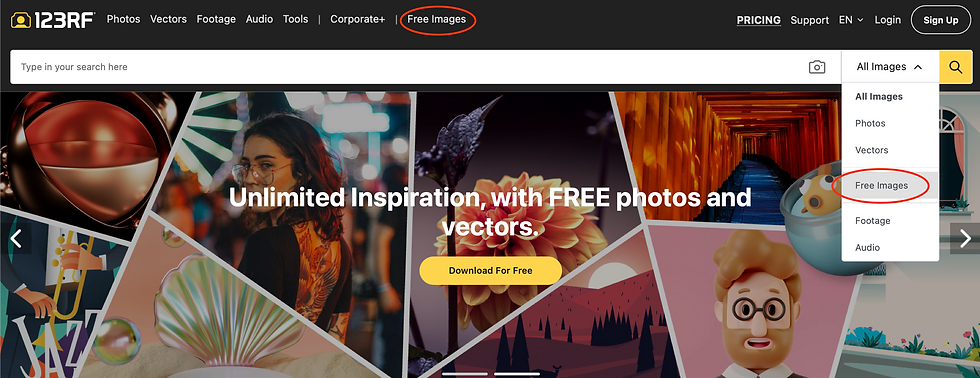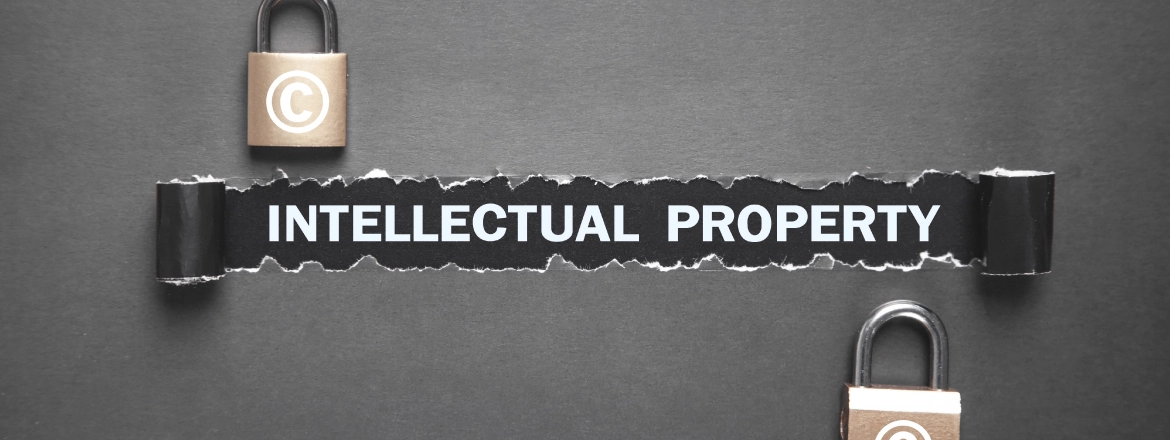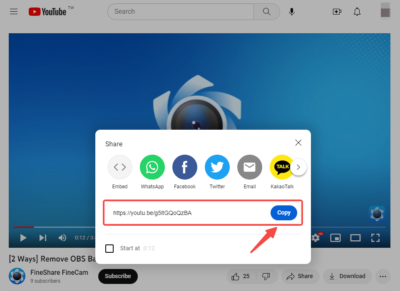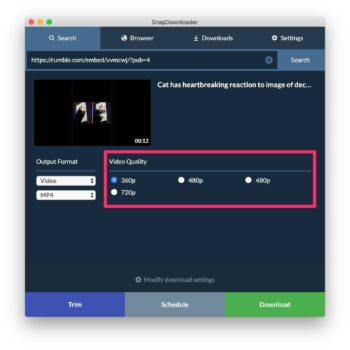1: Introduction:
Incorporating copyrighted content, such as images from 123RF, on your website requires careful adherence to guidelines and copyright laws. By following the outlined principles, you can ensure that you use 123RF images legally and ethically. It is essential to understand the copyright regulations applicable in your jurisdiction and obtain the appropriate licenses for the images you wish to use.
Additionally, respecting the terms and conditions provided by 123RF, including proper attribution and restrictions on usage, is crucial. By maintaining records of your licenses and avoiding unauthorized distribution, you can confidently incorporate copyrighted content while respecting the rights of the original authors.
Also Read This: Learn How to Download Anything from IMDB App with This Easy Trick
2: Understand copyright laws:

Understanding copyright laws is crucial when using copyrighted content, including images from 123RF, on your website. Copyright laws grant exclusive rights to the creators of original works, such as photographs, and protect their intellectual property. These laws vary by jurisdiction, so it's important to familiarize yourself with the specific regulations in your country.
Copyright typically grants the creator the exclusive right to reproduce, distribute, display, and modify their work. Unauthorized use of copyrighted content can lead to legal consequences, including lawsuits and financial penalties.
To ensure compliance with copyright laws, it's important to obtain the necessary licenses or permissions for the images you want to use on your website. This may involve purchasing licenses from stock image websites like 123RF or seeking explicit permission from the copyright holder.
This video shows how Guidelines for Using 123RF Images on Your Website:
https://www.youtube.com/watch?v=68fRTF_fd0A&pp=ygVUR3VpZGVsaW5lcyBmb3IgVXNpbmcgMTIzUkYgSW1hZ2VzIG9uIFlvdXIgV2Vic2l0ZTogSW5jb3Jwb3JhdGluZyBDb3B5cmlnaHRlZCBDb250ZW50
Also Read This: How to Sell Photos on Depositphotos: A Comprehensive Guide
3: Obtain proper licenses:
Obtaining proper licenses is a crucial step when using 123RF images or any other copyrighted content on your website. Licenses provide you with legal permission to use the images within the terms and conditions set by the copyright holder. Here are some key points to consider when obtaining licenses for 123RF images:
1. Select the appropriate license: 123RF offers different license types, such as standard licenses and extended licenses, to accommodate various uses. Determine the intended purpose of the images on your website and choose the license that aligns with that purpose.
2. Review licensing terms and restrictions: Carefully read and understand the terms and conditions associated with the license you are purchasing. Each license may have specific limitations on usage, such as the number of impressions, the size of reproductions, or the duration of use. Ensure that your intended use complies with these restrictions.
3. Purchase licenses from reputable sources: Obtain licenses directly from 123RF or authorized resellers to ensure their authenticity and validity. Avoid obtaining images from unauthorized sources or engaging in activities that infringe upon copyright.
4. Keep records of licenses: Maintain records of the licenses you acquire for your website's images. This includes documentation of the license type, purchase details, and any associated agreements or permissions. These records will serve as evidence of your authorized usage in case of any inquiries or disputes.
Also Read This: Remove ShareChat Logo from Video in Less Than a Minute with This Method
4: Read and adhere to license terms:

When using 123RF images on your website, it is crucial to carefully read and adhere to the license terms provided by 123RF. Here are some key points to consider:
1. Review the license agreement: Take the time to thoroughly read the license agreement provided by 123RF for each image you intend to use. The agreement will outline the specific terms and conditions that govern your usage of the image.
2. Understand usage restrictions: Pay attention to any restrictions placed on the usage of the image. This may include limitations on the number of times the image can be reproduced, the mediums in which it can be used, or the duration of use. Adhere to these restrictions to avoid copyright infringement.
3. Attribution requirements: Some licenses may require you to provide proper attribution to the original author or artist. Follow the specific guidelines provided by 123RF for attributing the image. This may involve including the photographer's name or a credit line near the image on your website.
4. Prohibited uses: Take note of any uses that are explicitly prohibited by the license. This could include using the image for defamatory, offensive, or illegal purposes. Ensure that your usage of the image falls within the allowed scope.
5. Renewal or expiration dates: If your license has an expiration date or requires renewal after a certain period, make sure to keep track of these dates. Cease using the image once the license has expired unless you have renewed it.
6. Seek clarification if needed: If you have any doubts or questions about the license terms or usage restrictions, reach out to 123RF directly for clarification. It is better to seek clarification beforehand rather than inadvertently violating the terms of the license.
Also Read This: Exclusive vs. Non-Exclusive Contributor on Getty Images: Pros and Cons
5: Credit the author:
1. Check the license terms: Review the specific license terms provided by 123RF for each image to determine if attribution is required. Not all licenses may mandate attribution, but it is good practice to credit the author regardless.
2. Locate the required information: Find the necessary information to credit the author, which is typically specified in the license agreement or on the 123RF website. This may include the name of the photographer or artist.
3. Placement of attribution: Display the attribution near the image on your website, ensuring it is clearly visible and associated with the specific image. Common placement options include directly beneath the image or in a credits section on the same page.
4. Attribution format: Follow the recommended attribution format provided by 123RF or use a standard format for crediting the author. This typically involves including the author's name or username along with the phrase "Photo by" or "Image by" before or after their name.
5. Link to the original image: If the license permits, consider linking the attribution to the original image on 123RF or the author's profile page. This allows visitors to your website to easily access the source of the image.
Article 13 passed. RIP EU's original content incorporating ANY copyrighted games, images, or sound. So much for net neutrality eh?
— Kazerioth (@Kazerioth) March 26, 2019
Also Read This: Mixcloud Downloader Not Working? Here’s How to Download Mixcloud Despite the Problem
6: Avoid unauthorized sharing or distribution:
When using 123RF images on your website, it is essential to avoid unauthorized sharing or distribution of the images. Here are some guidelines to follow:
1. Limit usage to your website: The licenses you acquire from 123RF generally grant you the right to use the images specifically on your website. Do not share or distribute the images outside the context of your website without proper authorization. This includes refraining from using the images in other projects, sharing them on social media, or distributing them to others.
2. Respect usage restrictions: Adhere to the usage restrictions outlined in the license terms provided by 123RF. These restrictions may include limitations on the number of impressions, the size of reproductions, or the duration of use. Ensure that your usage of the images complies with these restrictions.
3. Avoid making images available for download: Unless explicitly allowed by the license or authorized by 123RF, do not provide direct download links or enable users to download the images from your website. This helps prevent unauthorized distribution or usage of the images.
4. Prevent hotlinking or inline linking: Do not use direct links to the images hosted on 123RF servers to display them on your website. This practice, known as hotlinking or inline linking, may be considered an unauthorized distribution and can violate the terms of your license.
5. Protect image files: If you download the licensed images from 123RF, take measures to secure them and prevent unauthorized access or distribution. Store them securely on your website server and implement appropriate measures to deter unauthorized downloading or usage.
Also Read This: Download Latest Talks from TED and Stay Updated With This Epic Tool
7: Use watermarked previews responsibly:
1. Evaluation purposes only: Watermarked previews are provided for evaluation purposes, allowing you to assess the image's suitability before making a purchase. Do not use these watermarked previews on your website or in any other public-facing context.
2. Purchase the non-watermarked image: Once you have chosen an image for your website, ensure that you purchase the proper license to obtain the non-watermarked version. Using the watermarked preview on your website would be a violation of copyright and could result in legal consequences.
3. Do not remove or alter watermarks: Do not attempt to remove, crop, or alter the watermarks from the previews. Watermarks are intentionally applied to protect the copyright and ownership of the images. Modifying or removing watermarks is considered unauthorized tampering and can lead to copyright infringement.
4. Use a licensed image for your website: Once you have properly licensed the image, replace the watermarked preview with the licensed, non-watermarked version. This ensures that you are using the image legally and in compliance with copyright laws.
Also Read This: Download Audio File from SoundCloud with This Simple Method
8: Respect intellectual property:

Respecting intellectual property is of utmost importance when using any content, including 123RF images, on your website. Here are some guidelines to ensure you respect intellectual property rights:
1. Obtain proper licenses and permissions: Acquire the necessary licenses from 123RF or other authorized sources for the images you use on your website. Ensure that you have explicit permission to use the images within the scope of your license.
2. Avoid infringement: Do not use copyrighted content without proper authorization or outside the boundaries of fair use. Respect the rights of content creators and seek permission when needed. This applies not only to images but also to text, videos, music, and any other copyrighted material.
3. Attribute and credit appropriately: Provide proper attribution to the original authors or artists as required by the license or copyright guidelines. Respect the contribution and efforts of content creators by acknowledging their work.
4. Create original content: Whenever possible, strive to produce your own original content rather than relying solely on third-party materials. This helps you avoid potential infringement issues and establishes your unique identity.
5. Educate yourself and your team: Stay informed about copyright laws and best practices. Ensure that your team members or contributors are also aware of intellectual property rights and comply with legal requirements.
6. Respect digital rights management (DRM) tools: If any 123RF images you use have DRM protection, do not attempt to bypass or remove them. DRM is designed to safeguard the rights of copyright holders and should be respected.
7. Seek legal advice if uncertain: If you have doubts about the legality of using certain content or if you face complex intellectual property issues, consult with a legal professional who specializes in copyright law. They can provide guidance tailored to your specific situation.
Also Read This: Decoding UPCs: A Step-by-Step Guide to Finding UPC on Alibaba
9: Keep records of licenses:
Keeping records of licenses is an important practice when using 123RF images or any other copyrighted content on your website. Here are some guidelines for maintaining accurate records:
1. Document license details: Create a system to record essential information about each license you acquire. This may include the license type, purchase date, license number, and any associated agreements or permissions.
2. Store copies of licenses: Keep digital or physical copies of the licenses you acquire from 123RF. This could involve saving electronic copies of license agreements or printing out physical copies for your records.
3. Organize records systematically: Maintain a structured approach to organizing your license records. You could create a dedicated folder on your computer or use a digital document management system to store and retrieve the information easily.
4. Include image-specific details: Link each license record to the corresponding images used on your website. This helps you quickly identify which images are covered by specific licenses in case of any inquiries or audits.
5. Track license expiration dates: If your licenses have expiration dates or require renewal, make a note of these dates in your records. This ensures you can take appropriate action when licenses need to be renewed or discontinued.
6. Regularly update and review records: Keep your license records up to date by adding new licenses as you acquire them and removing expired or unused licenses. Regularly review your records to ensure they accurately reflect the images used on your website.
7. Secure and backup records: Implement measures to protect and backup your license records to prevent loss or accidental deletion. Consider using cloud storage or other backup solutions to ensure the longevity and accessibility of your records.
Also Read This: Becoming a Contributor on Shutterstock: A Guide to Selling Your Images
FAQ:
Q1: Can I use 123RF images on my website without purchasing a license?
A: No, you must obtain the appropriate license from 123RF to legally use their images on your website. Using images without a license constitutes copyright infringement.
Q2: How do I purchase a license for a 123RF image?
A: Visit the 123RF website and search for the desired image. Select the appropriate license type based on your intended use, add it to your cart, and proceed to checkout. Follow the instructions to complete the purchase and obtain the license.
Q3: Can I modify 123RF images after purchasing a license?
A: The license terms provided by 123RF will specify if you are allowed to modify the images. Some licenses permit modification for specific purposes, while others may restrict or prohibit it. Review the license terms and adhere to the permitted usage guidelines.
Q4: Do I need to credit the author of a 123RF image on my website?
A: The license terms for each image will outline if attribution is required. If attribution is specified, you must credit the author appropriately. Follow the guidelines provided by 123RF for attributing the image, typically by including the photographer's name or a credit line near the image.
Q5: Can I share 123RF images from my website on social media?
A: No, the licenses you obtain for 123RF images are generally limited to usage on your website. Sharing the images on social media or any other platform may require separate licenses or permissions from 123RF.
Q6: How long can I use a 123RF image on my website?
A: The duration of usage rights will be specified in the license terms for each image. Some licenses have time limitations, while others grant perpetual usage rights. Adhere to the duration specified in the license and discontinue use after the license expires unless you renew it.
Q7: What should I do if I have a question or issue regarding 123RF images and licenses?
A: If you have any questions or encounter issues related to 123RF images or licenses, it is best to contact 123RF directly. They can provide you with specific guidance and support based on their policies and terms of service.
Conclusion:
In conclusion, incorporating copyrighted content, such as 123RF images, on your website requires careful attention to guidelines and copyright laws. By understanding copyright regulations, obtaining proper licenses, and adhering to license terms, you can ensure the legal and ethical use of 123RF images.
Additionally, giving proper attribution, avoiding unauthorized sharing or distribution, using watermarked previews responsibly, and respecting intellectual property rights are crucial aspects of incorporating copyrighted content. Keeping records of licenses helps maintain compliance, provide evidence of authorized usage, and facilitate smooth management of your image assets.














